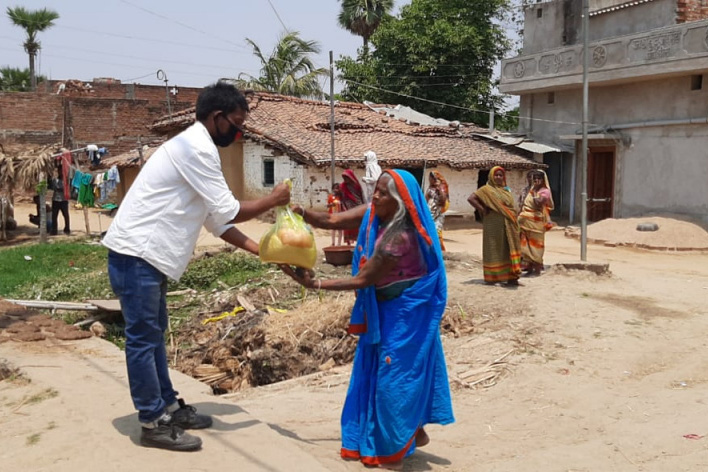I was looking forward to the Centre opening its doors at the beginning of July. The government had said with the continued reduction in the infection rate, then places of worship can open. However, with the 2-metre distancing in place, we can only allow 8 people into the Centre. With the need to deep clean after each session and having to wear facemasks it is clear that it would be impractical to open the Centre at this time. So, we will probably have to wait a little bit longer to get back into our Centre unless the advice changes.
Our July Sangha weekend retreat will also not be held at Vajrayana as, again, social distancing makes it impractical. However, instead, we will be holding an on-line retreat. We have learned much about how to work with online classes and study groups over the last few months and so an online weekend retreat will be an interesting extension of that knowledge for all of us. We will try to re-create that sense of a retreat sangha, a dedicated group of practitioners coming together to explore the Dhamma. We will also have the chance to meet in person as the end of the retreat will be marked by a final mediation in the Park on Sunday afternoon.
Please keep an eye on the website for further details and how to book your place.
History shows us that in times of crisis, the poorer or marginalised members of a country suffer. It is during difficult times that our natural and limited sense of empathy strengthens and we look for security with those we feel close to. This often means that we fear or blame those who we don’t feel so close to for the current situation and we do little to help them. We see this already happening in many countries of the world during this Pandemic as conflicts based on caste, class, race and wealth start of flare up. These difficulties are likely to get worse once the economic effects start to emerge in the coming months.
One of the largest of these world problems, which doesn’t get much news coverage in the UK, is in India as millions of people at the bottom of Indian society, indigenous peoples and those called ‘untouchables’, face great hardship and even starvation during that country’s lock-down. The caste inequalities have their roots back to the time of the Buddha. The Buddha spoke out against this form of segregation and oppression, and he implored people to think beyond their class, caste, tribe or race groupings and just view all the people of the world as the same. A clear and simple example of this teaching is from the Dasa Dhamma Sutta, “I have become casteless: A person leading a holy life should often reflect on this.”
Triratna Centres in India are doing their best to help these ‘untouchable’ people by giving out food and helping people travel back to their families in distant villages. This is the Dhamma in action, metta being expressed as compassionate activity, karuna to help those in real need. Do have a look at the appeals that Triratna is running to help these people.
https://www.karuna.org/coronavirus-crisis
https://www.gofundme.com/f/india-give
Bodhivamsa
Chairman Ipswich Buddhist Centre

